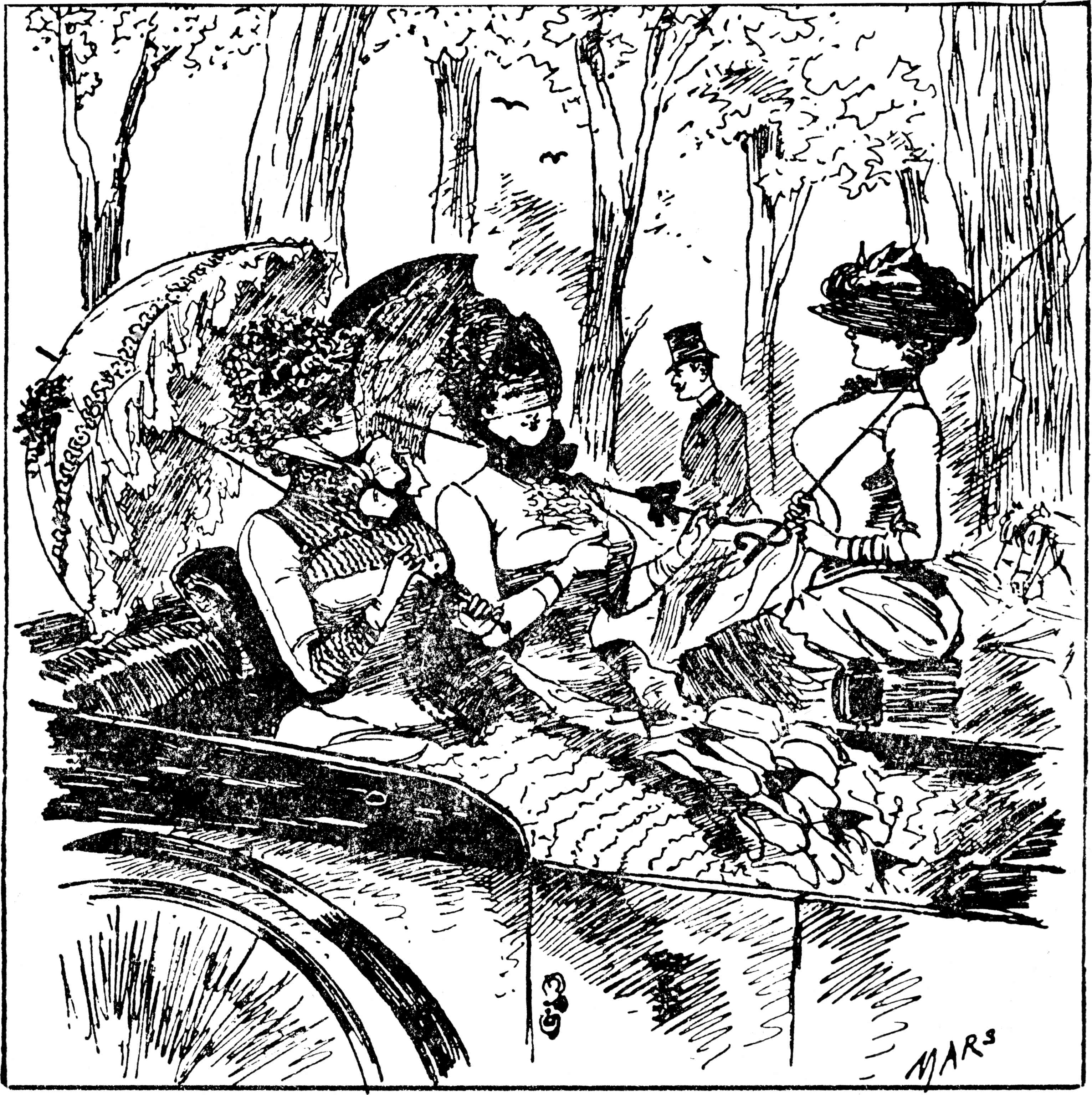The return of the class system in Sweden
The classless society was for a long time typical of Sweden, or at least we thought so. But today the notion of different classes is coming back. A political organization organized an 'upper class safari' in January to visit the Solsidan area in Stockholm. (Popularized by one of the most successful TV series right now)
-
 The classless society was for a long time typical of Sweden, or at least we thought so. But today the notion of different classes is coming back. Above a drawing of fashionable upper class ladies from the 1881 Journal Amusant.
The classless society was for a long time typical of Sweden, or at least we thought so. But today the notion of different classes is coming back. Above a drawing of fashionable upper class ladies from the 1881 Journal Amusant. -
-
The so-called “överklassafari” (upper class safari – an organized bus tour that took people to the richer neighborhoods of Stockholm for sightseeing) is a sign of the times. The motif of the organizers of the trips is to focus on the different classes in society. The organization is called 'Allt åt alla' which in a direct translation means "Everything for everyone," a clearly political and left-leaning organization.
-
 "Ever wonder how the exploiters live? ..ever wonder who owns the million dollar homes in Saltsjöbaden.." read the invitations to the fully booked Upper Class Safari. Photo of the main actors of 'Solsidan': Swedish TV4
"Ever wonder how the exploiters live? ..ever wonder who owns the million dollar homes in Saltsjöbaden.." read the invitations to the fully booked Upper Class Safari. Photo of the main actors of 'Solsidan': Swedish TV4 -
-
But the class system does according to some researchers seem to be back in Sweden. If, that is, it was ever gone.
“Everything comes and goes,” says Fredrik Liljeros, Professor at the Institution for Sociology at Stockholm University.
“Class as a concept was invisible and not very interesting for quite a long time. Now it is obviously back again.” Liljeros points out the recent debate in Sweden about boarding schools, the discussions about the privileges of the Royal House and speculations whether there’s a relation between this trend and the backwards move of the Social Democrats. He comes to the conclusion that the upper class, unlike the working class, remains an unexplored territory. Those who have written books about it are primarily journalists (Björn af Kleen’s “Jorden de ärvde”, Annette Kullenberg’s “Överklassen i Sverige”, and Susanna Popova’s “Överklass – en bok om klass och identitet” for instance). And professor and cultural geographer Irene Molina at Uppsala University agrees: “It’s very obvious,” she says. “The notion of class is perhaps different now than in the 1970’s, but it has become more and more differentiated between groups with varying conditions – of course it has, all research shows this.” Molina says that in order to understand the segregation that’s building up in Sweden, it’s important to look at the other side, those who have resources to choose to live in those posh neighborhoods. It’s important to look at what the state does and does not do, and how building- and housing policies affect the segregation, also. “Housing policies have been de-regularized and today housing is built only if there’s a profit,” she says. And even though Molina puts the date for the changed housing policy at1991, she doesn’t put all the blame on the right-winged parties, saying that several Social Democratic governments had the possibility to do something about privatization and the de-regularization between 1994 and today, without doing anything at all. “We’ve had a social change and I don’t think we ourselves have caught up. Research hasn’t caught up and politics haven’t either, nor the media. So in this way the so-called ‘överklassafarin’ is an interesting initiative to pay attention to the question.” -
 The tour was clearly established to start a debate by a political organization. It succeeded and, when it comes to the classless society of Sweden, well, everyone does laugh as they watch the popular 'Solsidan' TV series... Photo: Swedish TV4
The tour was clearly established to start a debate by a political organization. It succeeded and, when it comes to the classless society of Sweden, well, everyone does laugh as they watch the popular 'Solsidan' TV series... Photo: Swedish TV4 -
The "överklasssafari" bus tour took place on January 28 under the motto "Grow your class hate" (Odla ditt klasshat). This was not an activity to increase understanding or integration in society ..and sure enough, the bus, which stopped every so often to point out houses of "known tax evaders" or white collar criminals was sometimes met by egg throwing local youth. If you read Swedish, take a look at the organization that organized the bus tours at Förbundet 'Allt åt alla' - it gives an indication of why a bus tour such as above mentioned safari is at all possible in a country such as Sweden.
-
-
